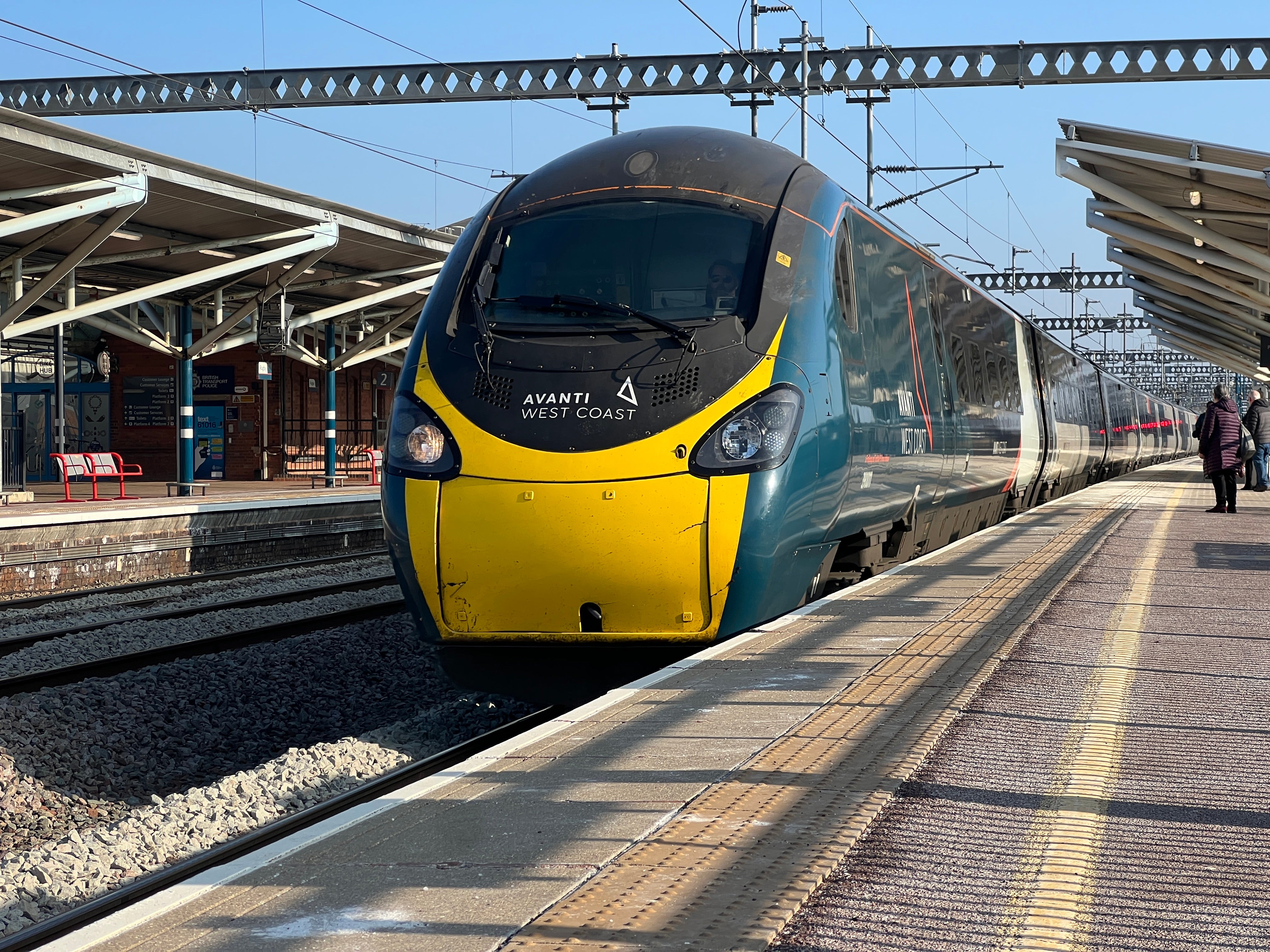How many trains run on rail strike days?
Avanti West Coast, CrossCountry, East Midlands Railway and LNER operated over a quarter of usual services

Your support helps us to tell the story
From reproductive rights to climate change to Big Tech, The Independent is on the ground when the story is developing. Whether it's investigating the financials of Elon Musk's pro-Trump PAC or producing our latest documentary, 'The A Word', which shines a light on the American women fighting for reproductive rights, we know how important it is to parse out the facts from the messaging.
At such a critical moment in US history, we need reporters on the ground. Your donation allows us to keep sending journalists to speak to both sides of the story.
The Independent is trusted by Americans across the entire political spectrum. And unlike many other quality news outlets, we choose not to lock Americans out of our reporting and analysis with paywalls. We believe quality journalism should be available to everyone, paid for by those who can afford it.
Your support makes all the difference.Three weeks ahead of the next round of national rail strikes, new figures have revealed which train operators have run the most – and the fewest – services on days when staff have walked out.
As part of its consultation on the controversial proposals for minimum service levels during strikes, the government has published an assessment of how many trains ran during the RMT national stoppage on 4 January.
Both Network Rail staff and on-board guards belonging to the largest union stopped work as part of a long and bitter dispute over pay, job security and working arrangements.
Around half of the Great Britain network was closed completely because Network Rail signallers walked out, and on the rest of the system hours were restricted to around 7.30am-6.30pm.
Analysis by The Independent shows that four key intercity operators ran over a quarter of their normal schedules during the strike. CrossCountry, which links Scotland, northern and southern England and South Wales through its Birmingham New Street hub, ran 32 per cent of the usual trains.
LNER, which connects London King’s Cross with Yorkshire, northeast England and Scotland, operated 29 per cent of its regular schedule. East Midlands Railway, linking London St Pancras with Leicester, Nottingham, Derby and Sheffield, achieved the same result.
Avanti West Coast, the much-criticised operator from London Euston to the West Midlands, northwest England and Scotland, ran 26 per cent.
GWR was the poorest performing London-based intercity firm, with just one in five trains running.
Most commuter operators in the London area also ran only around one in five trains. The biggest firm, GTR – which runs Great Northern, Southern and Thameslink – achieved 22 per cent.
South Western Railway, serving Surrey and Hampshire from London Waterloo, ran 20 per cent. Southeastern, running from London to Kent, operated 19 per cent.
The poorest performer was Northern, on 5 per cent. Many of its services are on lines that were closed by the Network Rail signallers’ walk out.
Passengers in Scotland and Wales suffered disproportionately considering neither ScotRail nor Transport for Wales was involved in the dispute. But the Network Rail shutdown hit both nations hard. In Scotland, 19 per cent of scheduled services ran, while the figure for Wales was 14 per cent.
Among “open access” train operators whose staff were working normally, Heathrow Express did best, with two out of three services running normally on 4 January. Grand Central, linking London King’s Cross with Yorkshire and Teesside, ran 58 per cent of its planned trains.
The figures are likely to be similar on 16 March, when the RMT has instructed Network Rail and train operator staff to walk out.
Later stoppages – on 18 and 30 March, plus 1 April – will involve only RMT members working for train operators, and more services are expected to run.
Separately, the RMT general secretary, Mick Lynch, has claimed that Avanti West Coast is cancelling one in six trains since it launched a revised schedule. He said: “Avanti have done nothing to tackle the cause of their disastrous performance, running fewer trains than last year.”
The Independent has asked Avanti West Coast for a response.
Join our commenting forum
Join thought-provoking conversations, follow other Independent readers and see their replies
Comments